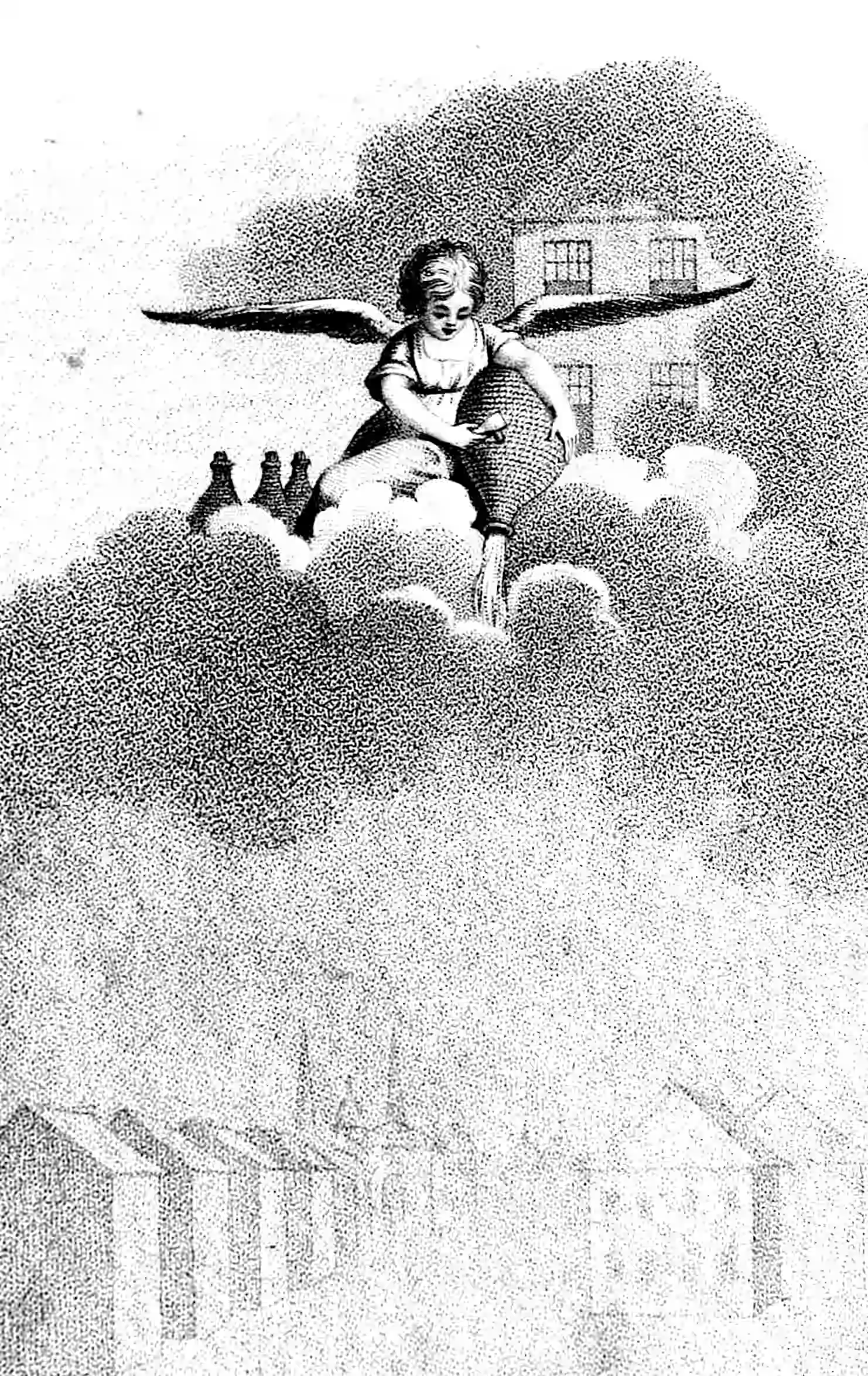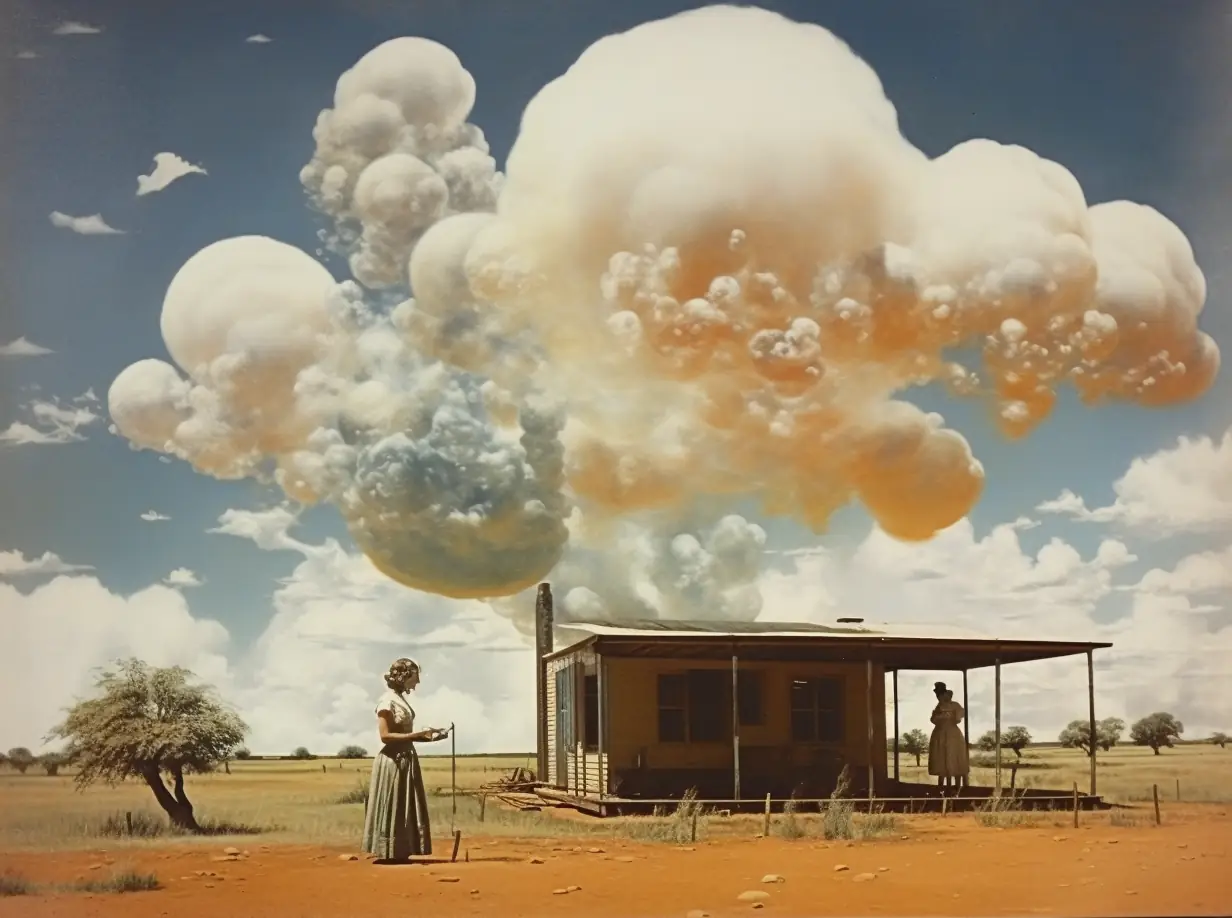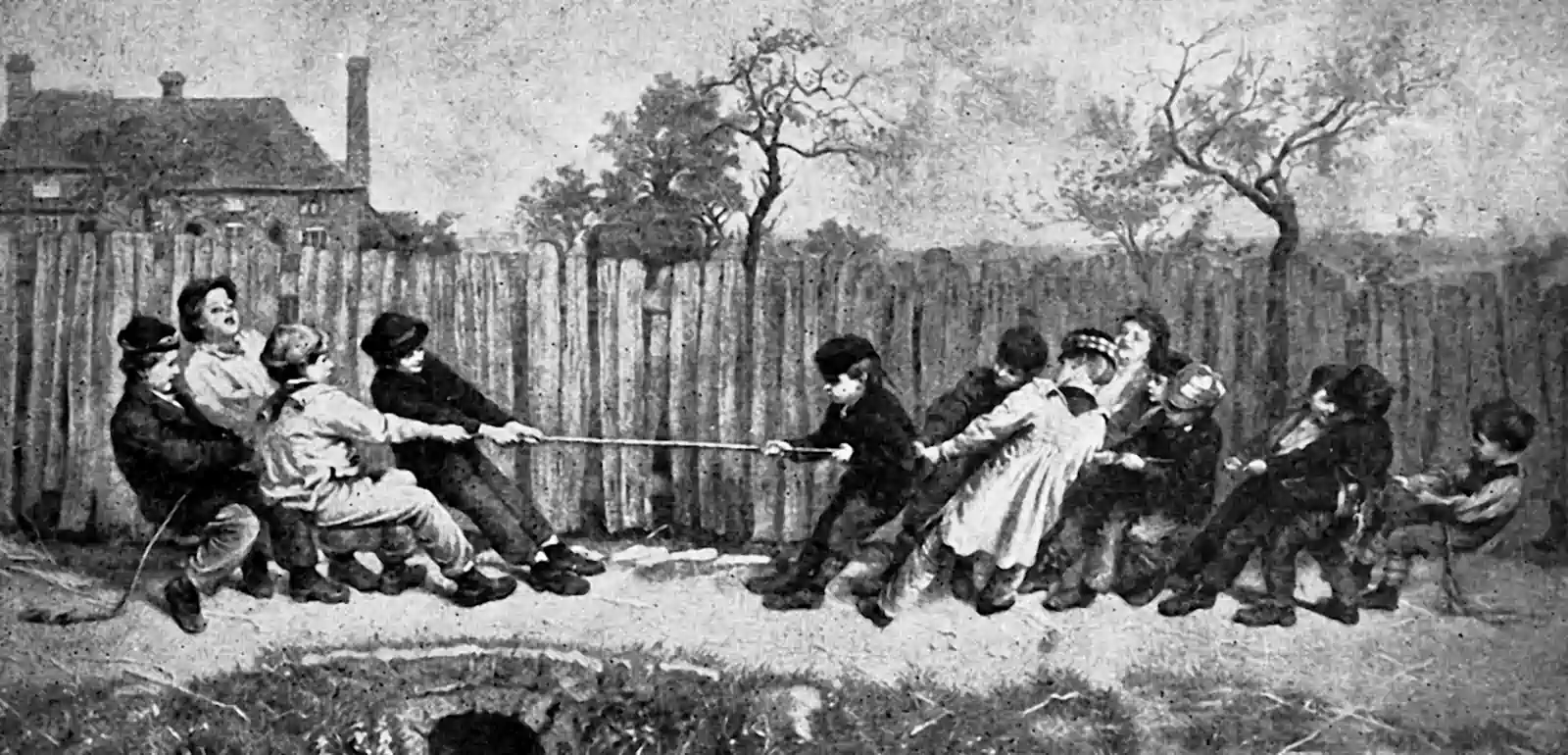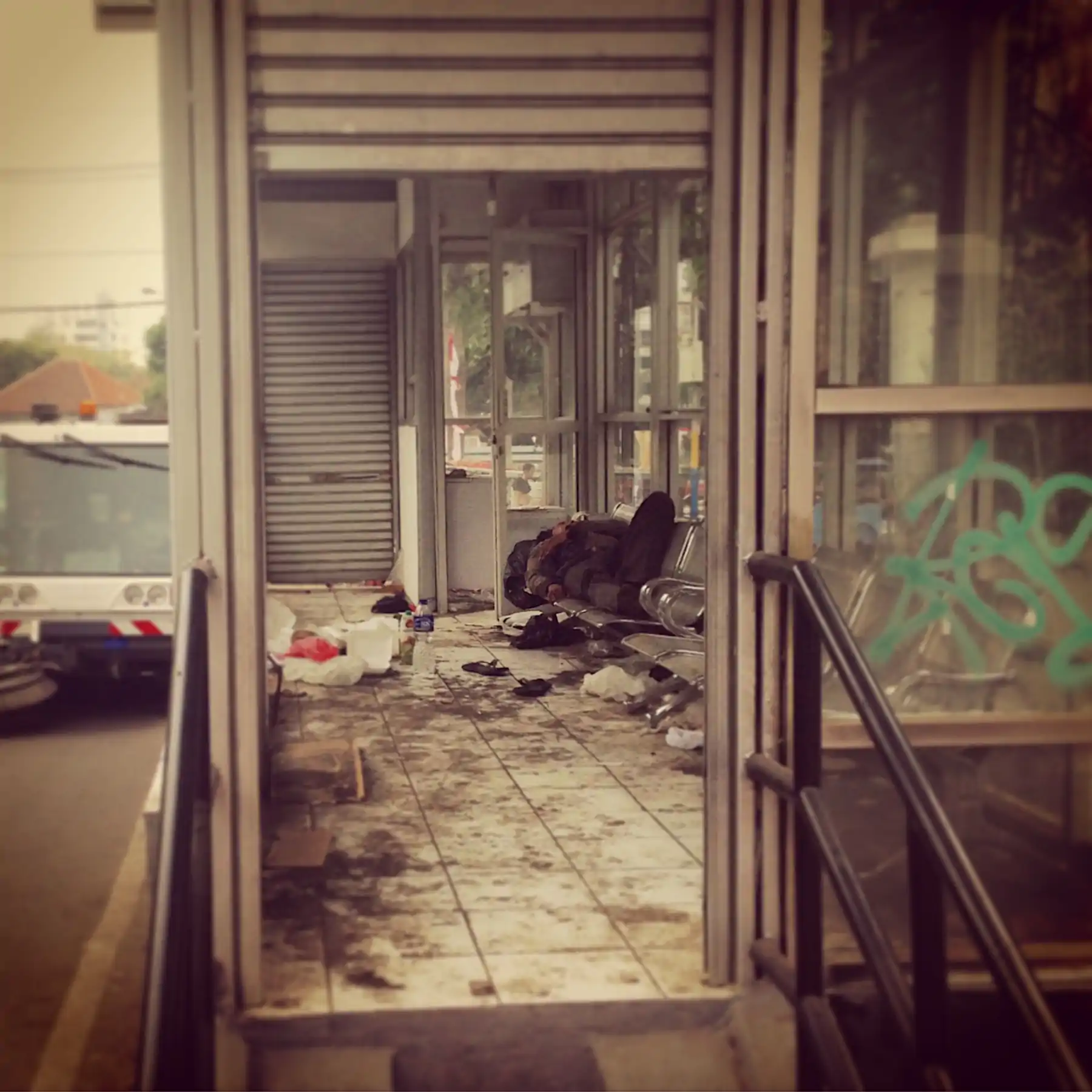The property market is pollution
Or: hunting endangered big game in dwindling habitat. Or: Investing in Boomer Bitcoin
May 25, 2021 — April 16, 2024
Suspiciously similar content
Assumed audience:
Australians with hobbies beyond kitchen renovation
One way of thinking about real estate economics.
After investigating housing markets in Australia, something was troubling me, and I couldn’t find a good way of explaining it.
I just realised the phrase I was missing: The property market is pollution. Housing-as-investment is the social equivalent of running a factory that pumps out toxic fumes and poisons the neighbours. It is a Tragedy of the Commons where a precious collective resource is poisoned to the benefit of individuals, at the cost of the community. Because real estate speculation looks more attractive than toxic sludge does, at least in Better Homes and Gardens, it is easy to pretend that this industry is not filthy or dangerous. I argue, though, that it absolutely is poisoning the social fabric of the nation, just as much as dirty industries pollute the air. Real estate speculation is a dirty industry, emitting a poisonous cloud of excessive kitchen renovations, landscape gardening, and prissy noise complaints, and the choking poisonous cloud is sterilising communities. Here, let me make this case to you.
Note I am not asserting that buying or selling houses is bad. I am asserting that there is a level of property market obsession at which it becomes destructive, and that we, here in Australia, are past that point. There is a certain level of eternally pumping the property market such that it hurts us all.
Rather, real estate is a kind of boomer bitcoin, in that it is a mutually pumped-up cartel investment, with huge negative side-effects that its apologists would prefer us to ignore.
I am also saying little about gentrification which AFAICT is a related but different thing.1 I think we can break housing problems down into more useful categories than gentrification-vs-not-gentrification.
1 By making housing expensive we are condemning ourselves to live boringly
The things that maximize the resale value of a house are not the things that maximize the excellence of the community which contains it. In a world where we are all trying to pump up the value of our property, I speculate that we are all doing a little bit to make the host community for that property a little less interesting.
tl;dr There is a tension between a house, or a community, that looks great on Instagram and one that is good to live in.
Here is my model of how this works:
If I want to maximize the value of my house as an investment, I would be crazy to want it to be in a thriving and diverse neighbourhood. I mean, maybe at the start I might move there for the lifestyle, and I might be excited by the scene. But over time, I realize that if we really want to make bank on this little investment, I should be optimising its attractiveness to a richer, older and probably more tired person. I don’t want to arse about with high-risk attractions, like nightclubs, that attract unseemly drunk persons and so forth, and might scare away the richer customer to the investment that I steward.
Nope, to really maximize the number of monied customers bidding up the value, I must have in the back of my mind that the neighbourhood should look unthreatening to the next real estate investor that comes after me. The more a neighbourhood looks generic, interchangeable and unremarkable, the better it goes for us who own a chunk of it. Do we want a thriving nightlife in our area? Or would we rather that the nightlife was thriving in someone else’s area? Do we want ethnic diversity in our community, or should people who look different to us live somewhere out of sight? Are people with low incomes allowed in our neighbourhood, or should they be tidied up somewhere far away where their less-recently-renovated houses drag down the tone? Do we want a community centre there, or would it be better if it were replaced with a gym? Would the next person to buy our property even notice if the community centre was gone? They are probably too busy to even notice, working long hours in their gruelling job in order to be able to afford the amount of money that we would like them to pay.
Unexpected excitement is a risk to a real estate investor with mostly downsides, a risk that should be minimised like any other.
But wait! I don’t (necessarily) mean you personally are opposed to excitement. I do not mean that you hate community. I mean, maybe you want to keep nightlife or low incomes or diversity, but on average across a suburb full of housing investors I’ll bet you that some of us are aware that too much fun might hurt our investment. Enough of us, who are incentivised to be the ones who turn up to council meetings rather than staying out late partying. Remember, the least tolerant win. Housing investorship turns such questions from a general social question — “Is my neighbourhood diverse?” — to an immediate financial question “How much am I willing to let diversity cost me?”. Housing investorship turns that thriving community outside the door into an expense that comes out of our ROI.
The distinction I am trying to draw here is… you know how some cafes design their food to look better on Instagram than it tastes in reality? Investment houses are that. They sell in neighbourhoods that look better on Instagram than they are in real life.
Anne Helen Petersen calls this the Market-reflected gaze and thinks of it as a kind of housing-related body dysmorphia-adjacent thing:
And just as the beauty and diet industry has been built on the insecurities incurred by those primary gazes, the remodeling industry thrives on the unspoken but totally spoken agreement that we should all feel bad about our homes. Hence: you stop feeling quite so bad, so less-than, so always-unsatisfied about your body….and start feeling really bad about your cabinets.
Why are people so concerned, after all, about their home’s resale value? Because in most cases, it’s their primary asset: their only hope of retirement, their only means of creating generational wealth. […]. The home becomes overdetermined as both an extension of the self and a site of financial security. No wonder it’s constantly breaking.
See also Grant and Handelman (2023). Maybe most of us don’t want to obliterate all the chaotic things entirely; But since so many of us stand to benefit from just a little less chaos in the streets, maybe it wouldn’t hurt to shut down just one or two venues. Get rid of just a little public housing. We should each try to ensure there is just a little less chaos in the suburb this year than the one before, so that we make just a little more money.2 Surely the fun will keep happening in the next suburb over? Or the one behind it? Somewhere, someone is taking one for the team and letting their retirement fund deflate so that I can have fun, right? I wonder how they managed to afford it?
So all of this is to say, I do not think investing makes you a bad person. There is no way out of the investing game; I invest. My stuff is financialized. I do not think anyone (or at least, hardly anyone) is being evil here. I just think we have set up a system for those investments where at each point where we have a choice, the easy option makes the world worse, and when we add up all the worse choices this aggregates to be really bad.3
This lack of intent does not make the bad outcomes go away, though. The more time we spend optimising real estate, the less room there is left in our lives for other things that are not optimising real estate. And there is no escape — even if I want to pretend housing is not a problem, the fact that some neighbours disagree and proceed to make it more expensive for me, makes it into my problem, and I will still end up writing long blog posts wherein I claim our property market is pollution. And Australians seem to already have little left to discuss except real estate. On our death-beds should we all be happy to say, “Sure I never finished writing my novel, and I didn’t see my kids, I never worked to make the world a better place, and I never started that band because we couldn’t find anywhere to rehearse without noise complaints and I never followed my dreams but woweee I did some quality renovations. #yolo.”?
2 By making housing expensive we are draining away the time people could spend on making the community awesome
The average size of new loans by state in Australia can make this concrete.
| April 2020 | April 2021 | |
|---|---|---|
| NSW | $600,000 | $635,000 |
| Victoria | $488,000 | $523,000 |
| Queensland | $386,000 | $430,000 |
| Western Australia | $391,000 | $413,000 |
The average adult weekly wage in Australia in May 2021 is $1,737.10. Now, you can have your own opinion of how much human free time is worth. But let us suppose as a ballpark figure that an average household in NSW throws 7 years of their working life into the fire just to pay down the value of the loan. Obviously with interest it is much more than that; my mortgage broker budgets for 30 years. Clearly I would, all things being equal, prefer not to need to work for 7 years if I could avoid it. But also, between 2020 and 2021 the amount of life that must be thrown away to own a house went up by 5 months. Or, more realistically, if we take into account that the take of the load needs to pay interest on that baby, much more than 5 months.
BUT ALSO, crucially, even if I can escape that time suck into work myself, lucky me, what happens to communities where the unlucky majority are forced to become mortgage wage slaves? There is not an infinite supply of time, and all long hard working hours are sucked out of participation in the community. The supply of volunteer hours for picking up litter, the time for building Burning Man theme camps, the time baking cakes for school fundraisers, the time for running free parties and remixing tunes and running puppet shows and inventing new schools of art and running scout troupes or starting new political movements or cults, all that comes out of the budget of time that is overtaxed in order to pump up the real estate market. Those pumped up houses, they do not build community. People in those houses can pump up community.
Comparing across time is one thing; but we cannot travel in time. We can travel in space; and looking at the table from that angle you could also take away another lesson:
As an average person, by living in NSW instead of Victoria you are throwing away a year of your life. But worse, so is everyone around you.
OK, but that is mere human flourishing. That time suck is also bad for the economy:
3 By basing our economy on real estate we are impoverishing ourselves
Speculative real estate bubbles are expensive for the wider economy. They make us all poorer. Housing is killing productivity by increasing the burdens on every other industry (well, maybe apart from the home loan industry.) Real estate is not an effective way of “growing the pie” of actual economic productivity. Not for nothing do we refer to the effort to increase our share of existing wealth without creating new wealth as rent-seeking.
Land speculation does not make new things. Land speculation does not plug into technological innovation. Land speculation does not build factories. Rather, land speculation makes factories more expensive, and diverts money away from investment in technology. Land speculation means I cannot afford to live near my work and need to spend more time driving to work. Land speculation is sucking time, money and life away from us.
On a personal scale the need to spend all the money on house leads to crazy outcomes regarding our own investments, by tying us in to semi-compulsory non-diversified investments in real estate. Which is risky. If investing in property during a speculative bubble, I am at risk of being one of the fools who thinks they know what they are doing, and these investors are at higher risk (Bayer, Mangum, and Roberts 2021). There are a lot of things going there, but one key thing to remember is that the typical investor in any Ponzi scheme is the chump who gets in because the people before them made profit. So if this entire property thing turns out to be a big Ponzi scheme, then the odds are that I am the chump. In which case… see above! Minimise the risk! Protect my investment by spending my days eradicating any investment-endangering excitement from my neighbourhood.
But that’s just the personal boringness. Consider how more interesting even our money would be if it were not ploughed into barren, paved-over McMansions. If we were not semi-required to invest in property we could be investing our savings in way cooler stuff. We could be building solar power stations, biotech research facilities, modernising agriculture, becoming a science superpower, I dunno, building libraries and theatres and … SO MUCH STUFF. Some of it might even look good on Instagram, if that is a priority.
But that is all rich person problems. How about the obviously worse problems the less rich face? Don’t even get me started on the links to homelessness and poverty. Obviously expensive housing is terrible for people who cannot afford it, and obviously expensive suburbs keep people away from jobs, especially the people who need jobs the most. Obviously expensive property means we all spend more time stuck in traffic because we cannot get to our jobs, which is boring in general, but worst of all for people with less choice.
Here’s another one, though. Have you considered that maybe housing investomania is harming democracy? Many famous people have argued that healthy cities are necessary for healthy democracy. Jane Jacobs wrote a lot about this. The long and short of her argument is that a society which does not have a robust, lively urban scene also does not have a robust and lively polity. The endless silent streets of investment suburbs are hostile to us working together for our common good. If we spend all our time stuck in traffic to commute a long way to a job from a nearly-affordable suburban McMansion and never get to meet our neighbours, then we never discuss the world with them, we never learn to trust them, and society as a whole is more hostile, less trusting, less generous and less functional.
4 Reducing pollution
Ok, I get it; Even though we might know it is unhealthy, it is hard to resist investing in housing. In a sense it would be crazy not to invest in an industry where there is massive support for taxpayer subsidies for our speculation (Sheppard and Gray 2017). If this were any normal investment, we would need to be mates with powerful people to get such sweet kickbacks. But in real estate apparently we get that for free.
So really, to fix this problem we are going to need to change policy to fix the incentives. Let us get back to that in a moment. In the meantime, what can we personally do? Let us look at how we might reduce the harm we do.
4.1 Minimise the amount of money we spend on this
Realistically we are all required to play at being property investors, even if only indirectly. But we can control, to a degree, how much this intrudes into our lives, and how much we support this polluting industry.
We can minimise how much of our own money goes into housing and thus is wasted for society by minimising its role in our retirement investment plans, and save our funds to invest in real productive industries. So… do it on the cheap. Form a housing collective. Join a cooperative. Stick to an apartment rather than buying a McMansion. Sharehouse. Squat an empty building. I hear some people move into commercial warehouses on the sly. We can also invest the money left over into something else with fewer polluting side effects. Prefer to put our money in shares, or starting a business, or into our superannuation fund, or, I dunno, impact investing, or maybe we have enough to give some away to the poor, idk.
Or, maybe, buy non-polluting real estate. Maybe, organic, free-range real estate. But what even is free-range organic real estate? I argue it is probably renting. But if I rent a property, I know the game is rigged against me and I can’t own a pet or hang a painting. I can’t install solar power. We all know it might take 3 months to get the plumbing fixed, and rental properties are cold in winter and hot in summer etc, because owners do not install any of that stuff for mere renters; that is reserved for investors.
I get it. It is hard. But I am giving it a crack at the moment, via cohousing.
4.2 Changing the system
The state is in the cul de sac of Big Property.
There is a voting majority of Australians who will vote to do whatever it takes to protect their investment in a piece of the land pie, so we can assume this will keep going for a while. Moreover, when the market does collapse, presumably this will be a broad-spectrum economic disaster felt by every part of the Australian economy, so it is not clear how one would sit that out. Indeed, the recent HomeBuilder scheme is an example. Popular, AFAICT. We, as a population, love giving money to the property-fiddling industry.
If we would prefer a different system we would need to shift this. Voting for parties with a platform of changing this (or indeed persuading the incumbents to change their policies) is how you change this. In particular, we would need to not vote for governments that support the property bubbles. We would need a government with a plan to help renters, to provide public housing etc, whatever the economists reckon is the best model for that. I reckon that an orderly plan to exit property speculation would not need to cost us our retirement savings; we can just stop pumping up the property market and let the rest of the economy catch up, if we organise a transition. I argue that an orderly exit from the property bubble is in many ways safer than just hoping it keeps going to infinity without a backup plan.
Anyway, if we want that to happen, we need to shift the conversation, from property investment as an infinite money machine, to property as pollution, which is why I am writing this I suppose. If we continue to inflate the market so that I can get mine, devil take the hindmost, then we are polluters.
4.3 Pollution offsets
But changing government policy is hard! I hear you say. Possibly we can offset the harm we are doing to the communities by paying offsets, just like lazy people do for other types of pollution. If my property investment is doing well at the cost of hurting society, I could consider donating some proceeds to people who will undo some of the damage I am doing. If I were about to make a cool half-million dollar profit on selling my home, free from capital gains tax then… Well done me. Now, give 5% of that to a charity that will fix some of the damage I just did to society to get that sweet kickback.
Here are some contenders:
- Better Renting is an advocacy group for renters. I donate to them myself.
- Tenants’ Union is also an advocacy group for renters. AFAICT they are older than better renting but also stodgier? I suspect their database of useful advice is high value, but found their political advocacy less inspiring; the rules of the game need changing.
- Pay The Rent tries to give money back to the Aboriginal people of Australia who, when you think about it, have gotten one of the worst real-estate deals of all time.
- I am not sure about a good charity for homelessness, but perhaps Australian Red Cross is good? Anyone have hints on that?
4.4 Friends don’t let friends do real estate
Here is an idea: we should not be enablers of real estate pollution. Let us not encourage people to spend more of their lives on hyping the property market than they must to survive. We can minimise our interest in renovations. We do not need to enable speculative investment in weird assets with massive negative side effects. We have cryptocurrency for that.
Maybe if we remember that property markets are necessary but polluting industries, we can respond socially appropriately. How about if we talk about buying our houses with the same degree of pride that we would talk about dumping toxic waste in a schoolyard, or poaching endangered animals. And if our friends really want to have pride in hurting kids and animals, maybe it is time to have a quiet chat with them and ask them if they have really thought it through.
If we must talk property portfolios, how about committing publicly ourselves to low-pollution housing? If you can attain one, be proud of your organic, free-range, rental-based lifestyle choices. Advocate for them! Make it cool. Flash your disposable income around, the income that is not going into servicing a 30-year mortgage, so that someone from an earlier, landed, generation can have passive income by making everyone else’s life more expensive. (Of course this should not stop one disclosing unsatisfactory rental arrangements).
Somewhere out there, if we get enough property refuseniks we might reach a tipping point, you know? If enough people give up the mutual hype-job of pumping the real-estate market for each other then what will keep it growing?4 If enough people opt out, we might even burst the property bubble, and we could all obsess about something else. A fella can dream.
5 Further reading
There is some background theory at land economics. See also
Possibly renting kills you, or at least ages you more quickly (Arundel et al. 2022; Clair, Baker, and Kumari 2023; Li, Baker, and Bentley 2022). Obviously take it with a grain of salt; these studies are massively confounded.
-
As a renter, landlords and real estate agents have access to so much information about you, but you don’t get that same level of transparency from them.
Real estate agents often provide photos of properties that are years out of date, and don’t tell you what it’s like to actually live there. You don’t get to enter into a new rental knowing how difficult it might be for you to request basic repairs to be completed.
This website is here to help.
It will always be free, and there will be no ability for landlords or real estate agents to pay for reviews to be removed.
Do your part to help your fellow renters by writing an anonymous review of your rental property or real estate agency.
Actually, Japan has changed a lot—by Noah Smith — Japanese real estate is surprising
What’s causing Australia’s nightmare rental market? - Podcast
Finland’s Zero Homeless Strategy: Lessons from a Success Story – ECOSCOPE
6 References
Footnotes
I think? Gentrification seems to be defined in various ways, that shift strategically. Any time we use that word we need to consider if it means I was here before it was cool and anyone who came after me not as cool. Generally not useful for starting a conversation, that, so let us not.↩︎
Is that what people mean by “gentrification”? Dammit I said I wasn’t going to speculate about that.↩︎
The economists have studied this problem a lot. If you would like to go deeper, maybe check out This lecture by Scott Page or read Aydinonat (2008). Maybe look up the “Schelling segregation model,” that is a whole afternoon of fun right there.↩︎
The tax system. But maybe we can change that too.↩︎





